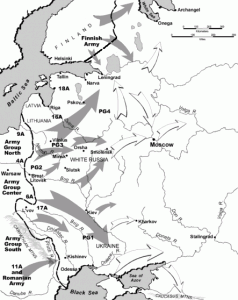The New Rules Of Engagement: Nine imperatives for our post-9/11 world
Statutory rules to authorize preventive detentions;
Adoption of the isolation-and-quarantine statute;
Establish new laws to govern the use of federal troops (domestically)
Major-General Andrew Mackay Says MoD Is ‘Institutionally Incapable' In Afghanistan
“From the top of the MoD through to the Army’s staff colleges, the structures, despite the best will in the world, are institutionally incapable of keeping pace with rapid change and the associated willingness to adapt — and quickly — at the same time,” the paper says.
Mobility Helps Al Qaeda Extend Reach
Al Qaeda's decentralized structure across the Middle East is proving one of its biggest advantages over American firepower.
Terrorism's Triumphant Techniques:Why the US is behind the power curve (Ralph Peters)
The terrorists are “inside the wire.” Everywhere. From eastern Afghanistan to Texas. And we're stalled. For all of our wealth, technology and power, our enemies have the strategic and psychological initiative.
Our enemies have done what we refuse to do. They've analyzed the problem objectively and engineered ruthless solutions.
EDITORIAL: Obama's failed freshman year
President Obama's freshman-year foreign policy was the worst in living memory. At the dawn of 2010, the United States finds itself noticeably weaker in international affairs than it was when Mr. Obama took office, and there are no signs of improvement in the year ahead.
Use of potentially harmful chemicals kept secret under law
Of the 84,000 chemicals in commercial use in the United States — from flame retardants in furniture to household cleaners — nearly 20 percent are secret, according to the Environmental Protection Agency, their names and physical properties guarded from consumers and virtually all public officials under a little-known federal provision.









